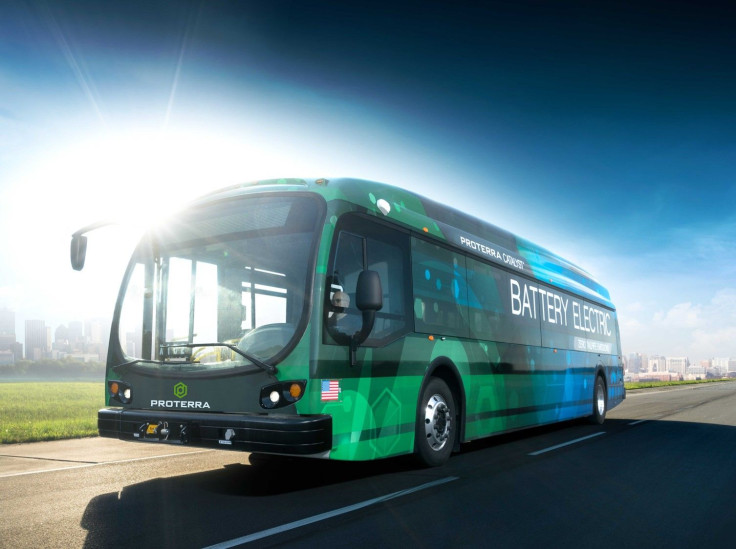Proterra Starts Autonomous Bus Program In Nevada

Electric bus maker Proterra is moving into the autonomous driving field, with a pilot program starting in Nevada. In an announcement Tuesday, the Burlingame, California, company said it was launching the “industry’s first autonomous bus program” in partnership with the University of Nevada, Reno, and its Living Lab Coalition partners.
As its basis, the program assumes the dawn of “eventual autonomous mass transit” and is therefore aimed at solutions that will build an image of safety about the future of mass transit. Toward that end, the “autonomous vehicle pilot will deal with real road conditions from the perspective of public transit systems, and emphasize the most challenging aspects related to mass transportation, which include dense and dynamic environments, degraded conditions, and a need for swift emergency response,” according to a statement sent to International Business Times.
In the first of the pilot’s three phases, a Proterra bus operated by the Regional Transportation Commission of Washoe Country in Nevada (one of the Living Lab partners) will run on specific routes to sense and collect data. This information will be used to develop technology and systems, based on real-world conditions. The second phase will involve data mining, communications and developing algorithms, while the third will focus on licensing and commercialization.
Read: This Electric Bus Travels More On A Single Charge Than Any Tesla
Carlos Cardillo, director of the Nevada Center for Applied Research at the University of Nevada, Reno, said in the statement to IBT: “In the pilot, we plan to research and develop a robust set of algorithms for localization and mapping, object detection in the domains of multi-modal fusion and recognition of intent to ultimately advance robotic perception and move systems closer to our simultaneous goal of enhancing safety.”
The system to be developed is envisioned as one which doesn’t merely detect traffic, but also predicts vehicular traffic to improve safety.
“As more and more communities take steps to integrate autonomous vehicles, we will continue to advance mobility solutions that best meet those evolving needs, while embracing the highest safety standards on the market. We see the Living Lab pilot as a way to support ongoing safety improvements, encourage technology development in autonomous vehicles, and better understand complex road dynamics,” Proterra CEO Ryan Popple told IBT.
The first phase of the pilot is expected to be completed this year, and the second phase is set to start in 2018. However, the actual time-frame for the pilot is flexible, and the timing of the third phase will depend on exactly how long the first two phases take to complete, according to the company.
In January, Proterra raised $140 million in funding. Four months earlier, in September, the company launched its E2 Catalyst range of buses, which drove over 600 miles on a single charge under test conditions. Even the nominal range of between 200 and 300 miles is enough for most mass transit routes in the U.S., in and around large urban centers.
© Copyright IBTimes 2024. All rights reserved.





















